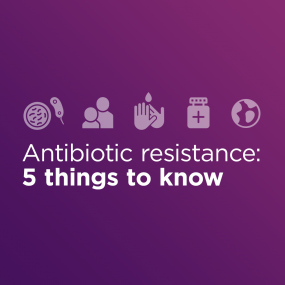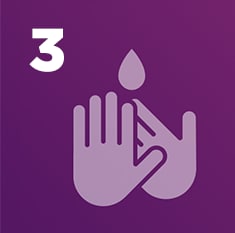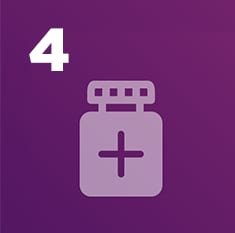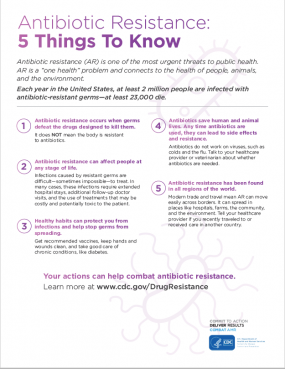01/17/2020 04:57 PM EST
Source: Centers for Disease Control and Prevention
Related MedlinePlus Pages: Antibiotic Resistance
Related MedlinePlus Pages: Antibiotic Resistance
5 Things to Know
Antibiotic resistance is one of the most urgent threats to public health. It is a One Health problem, meaning antibiotic resistance is connected to the health of people, animals, and the environment.


Antibiotic resistance occurs when germs defeat the drugs designed to kill them, called antibiotics. It does NOT mean your body is resistant to antibiotics.

Antibiotic resistance can affect people at any stage of life. Infections caused by resistant germs are difficult—sometimes impossible—to treat. In many cases, these infections require extended hospital stays, additional follow-up doctor visits, and the use of treatments that may be costly and potentially toxic.

Healthy habits can protect you from infections and help stop germs from spreading. Get recommended vaccines, keep hands and wounds clean, and take good care of chronic conditions, like diabetes.

Antibiotics save human and animal lives. But, when antibiotics are used, they can lead to side effects and resistance. Antibiotics do not work on viruses, such as colds and the flu. Talk to your healthcare provider or veterinarian about whether antibiotics are needed.

Antibiotic resistance has been found in all regions of the world. Modern trade and travel mean it can move easily across borders, and can spread in places like hospitals, farms, the community, and the environment. Tell your healthcare provider if you recently traveled to or received care in another country.



































No hay comentarios:
Publicar un comentario